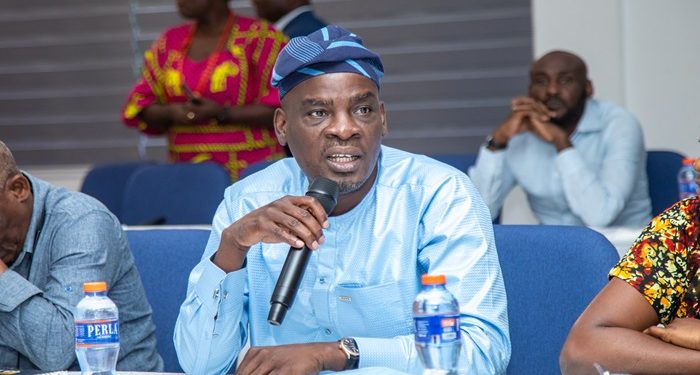Yesterday United Nations Secretary-General Kofi Annan received the Nobel Peace Prize and issued a clarion call for the rights of the individual, declaring that “the sovereignty of states must no longer be used as a shield for gross violations of human rights”.
Mr Annan was speaking at a gala ceremony in the Norwegian capital Oslo where he and the United Nations were jointly presented with the 100th Nobel Peace Prize. In the audience were his wife Nane and Ghanaian President Agyekum Kufuor.
“What begins with the failure to uphold the dignity of one life, all too often ends with a calamity for entire nations,” he said. Mr Annan and the UN received the award from the Nobel committee for their work “for a better organised and more peaceful world”.
The presentation ceremony was attended by a number of former laureates including Tibet’s Dalai Lama, South African Bishop Desmond Tutu and Northern Irish First Minister David Trimble.
To accept the prize Mr Annan was joined by South Korean Foreign Minister Han Seung-soo, President of the United Nations General Assembly.
Calling the 20th century the deadliest in history, Mr Annan said “we have entered the third millennium through a gate of fire”.
But he said that, “if today, after the horror of 11 September, we see better, and we see further, we will realise that humanity is indivisible” with “bonds that bind us all in pain as in prosperity.”
He said he believed the mission of the UN in the 21st century would be defined by “a new, more profound awareness of the sanctity and dignity of human life, regardless of race or religion.”
He outlined the three key aims of the UN in the future – eradicating poverty, preventing conflict and promoting democracy.
Quoting from the Koran, Confucius, the Jewish Talmud and the Christian gospels Mr Annan pleaded for tolerance, saying the notion that one particular faith is better than another had led to some of the greatest horrors in human history.
Mr Annan said that the UN had been founded on the ashes of World War II, but reminded listeners that the horrors of war had not subsided, citing the 1994 genocide in Rwanda and the war in Bosnia.
Survivors of massacres in Rwanda and Bosnia were among the few who criticised the decision to give him the prize – he had been head of UN peacekeeping at the time.
“Today’s real borders are not between nations, but between powerful and powerless, free and fettered, privileged and humiliated,” he said.
“Today, no walls can separate humanitarian or human rights crises in one part of the world from national security crises in another.”
In accepting the award Mr Annan acknowledged the work done by UN workers throughout the world who have dedicated their lives to peace.
The award, named after its founder Alfred Nobel of Sweden, was first given in 1901, when it was presented to Henri Dunant, the Swiss founder of the Red Cross, and French peace campaigner Frederic Passy.
The prize now comprises a gold medal, diploma and a cheque for 10m Swedish crowns ($953,500). Here in Ghana, there’s been much joy and as reported in yesterday’s Accra Mail, the government would be naming a monument after him in the nation’s capital.
Source: GhanaWeb










